
Kwania County MP, Tony Ayoo, has been the Chairperson of the Parliamentary Committee on East African Affairs. Ayoo explained to The Sunrise the achievements and challenges of the committee.
Question: What is the mandate of the East African Affairs Committee of Parliament?
Answer: This is a sectoral committee constituted after every financial year to oversee the Ministry of East African Affairs [MEAA] activities. Our mandate is to help the Ministry process their budget performance; and how they are implementing the Government programmes.
The Ministry is a cross-cutting one where most of the activities are implemented by various ministries, departments and agencies. The Treaty establishing the Community requires that every Partner State must have a ministry in charge of the affairs of regional integration.
One of our struggles, as a committee, has been to ensure that governments live to their commitments; to meet their contributions to the East African Community [EAC]. We have been struggling with Government to increase the budget for the Ministry; most of the East African counties are in arrears in their contributions.
At one point we were at 60%, but because of our endeavours, we are now at about 98% subscription. We still have arrears to institutions, like the Inter-University Council of East Africa which is in Kyambogo in Uganda; we are in arrears of about 10 billion shillings.
One of our concerns has been in ministries. For example, in the Ministry of Agriculture. We have a policy under the EAC that gives the ministry benefits from EA Integration, so we want to see if they are really implementing their budget as per their work plan and in line with the EAC policy on integration. In the Ministry of Trade, we want to know issues like; non-tariff barriers, how traders are benefiting from EAC, how Ugandans are getting employment, work permits and complaints of the businessmen.
When we went to the border post of Mirama Hill, the traders there told us that despite the bird flu out-break in the country having been contained six months ago; the Rwandan authorities were still refusing entry of poultry products from Uganda.
We put this to the authorities who liaise with their counterparts in Rwanda, and immediately that bottleneck was cleared. We have visited border posts of Busia, Malaba, Katuna, Mutukuka, Eligo, Mirama Hills, Kyanika to talk to the border communities to listen to some of their challenges. They are being frustrated by the Government agencies like; the Revenue Authority and the Immigration
We have been on ground to follow where work is. We have addressed the use of scanners at the Busia Boarder Post, which was inaugurated by Presidents [Yoweri] Museveni with Uhuru [Kenyatta] posed the problem of delays to offload all the container goods from trucks.
This was subject to fraud and smuggling of goods. We have also brought to the attention of Government the management of the a one-stop border post by a few people, yet we are supposed to have people handling Agriculture, the movement of drugs, monitoring quality of fuel, among other various commodities. Sometimes you find only the revenue people at the post.
We have raised to the Presidents issues of the porous borders where conflicts occur between our people with Tanzania, Rwanda, Kenya, and South Sudan in which our borders are not adequately monitored, causing an influx of people from the other sides.
If you are coming into Uganda from the EAC, you must pass through designated points; and the reasons why you are coming to Uganda must be very clear. It must be on record, and when you will go back, even if you have come and you want to renew your stay, you are free to do that, but legally. My concern is that information about EAC integration is still lacking among the people. Even in the Ministry, many of them are doing their work without aligning it with the policy on integration.
Each ministry is doing their own thing and yet they are supposed to align everything so that whatever we do will have a greater impact on integration and benefiting Uganda as a country. And that is where we are still doing very badly as a country.
When we took on the East African Agricultural Productivity project, Kenya took on the diary; Uganda took on cassava, Tanzania, rice; and, Ethiopia took on wheat. With rice, Tanzania is doing well, but for us with cassava, we have not moved. The Ministry of Agriculture says implementation is under Namulonge; so putting things very clearly has become a problem.
This is one of our greatest challenges. The MEAA, as a coordinating ministry, has one weakness: to ensure that they push the others ministries, departments and agencies to comply. It is weak, even when we have the Second Deputy Prime Minister [Ali Kirunda Kivejinja] as the Minster. We called upon [the Ministry of] Finance to go and make commitments; yet the Minister of East African Affairs is supposed to enforce that these people do what they are supposed to do.
That is why now we have developed a checklist and pushing for meeting for the East African Standards when the budget is being presented. We do an audit and they can convert whatever they are doing into tangible reality.
So the people will see the effect of the decision we take. For example, if we had developed cassava, there are so many products that Uganda would be having, such as: processing ethanol, starch for pharmaceutical, which we are still importing; cassava flour for both breweries and bakery; and, we can have glucose from cassava. But you find people running things separately instead of having a convergent point.
One of the things we did was to call chairpersons of all the committee in Parliament to brief them about this. We told them that, as chairpersons of the various committees in Parliament, they made commitments to work towards the EAC integration and ensure that work plans, activities and budgets are reflected in those initiatives.
Sport as a Unifier
We drew the attention of the Speaker of East African Legislative Assembly [EALA], [Martin Ngoga] to the conflicts that undermine the spirit of integration through sports, because if we are to integrate the people as a political federation, then sports should be able to integrate all the leaders to understand and accept to work together. Yet conflicts arise between Rwanda and Burundi; when Rwanda is participating in the EA games, Burundi does not participate, when Burundi is participating, Rwanda does not participate, year in and year out.
We also raised a concern on South Sudan in the meeting with President Museveni. We should take the advantage to use their joining the EAC to help improve the situation in South Sudan and the relationship between it and Uganda. When South Sudan went to war, it seriously affected Uganda’s economy. South Sudan was our biggest market within the region, but immediately they went to war, we lost that market.
Q: How do you ensure that bills passed in Uganda are relevant to the integration agenda.
A: You will be surprised that when it comes to issues like Bills, the East African Affairs Bills like the one on Military/Army, such bills will not come to our committee. They go to the Defence and Internal Affairs Committee, much as these issues are of the EAC importance. However, we are there to raise a red flag.
Q: Do you take this as a challenge?
A: No, it is not a challenge because if we are coordinating. Our work is to see that they are doing the right thing that the Bills are coming through and are being implemented. There is no conflict on that but it is always a concern for us and we monitor it very seriously. Sometimes, EALA members come and we make comments on these Bills. Our challenge is that the MEAA is supposed to be reporting to Parliament quarterly on the status of implementation, integration, on Uganda’s position, but unfortunately they have never reported, even when they make the commitment on the floor of Parliament.
Q: Any specific reports from the Parliamentary Committee on the East African Community Affairs?
Last June, I raised this with the Speaker of Uganda’s Parliament; so we have now generated seven reports, ready to be presented to Parliament. It gives Parliament an opportunity to discuss these things, but the MEAA has not done its part.
Q: What are some of the East African Community projects within Uganda that your committee supervised to facilitate the integration?
We went the East African Civil Aviation School in Soroti to find out what they are doing, how Uganda and the region have benefited from it. They presented their situation about improving Air supervision.
But the Bills that would support Uganda in the international aviation industry have delayed. We raised the attention of Parliament, and I have seen now that Bill is among those that are coming in Parliament for discussion. On road safety, we had the extra-ordinary summit here; the Heads of Government were concerned that the roads we are constructing may become a death trap if we do not handle the issue of road safety.
Awareness and education is seriously lacking and people have sat aback; we should not be doing business as usual. The committee went through all EAC Partner States to raise their concerns. Now we have a plan to go to them and see how their parliaments hold their ministries accountable and responsible in doing things of the policy for integration.




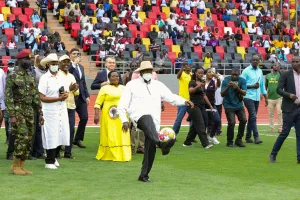
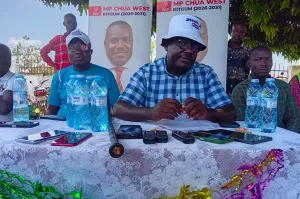
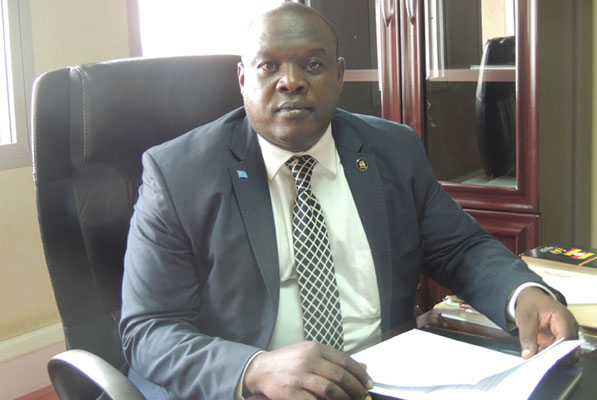
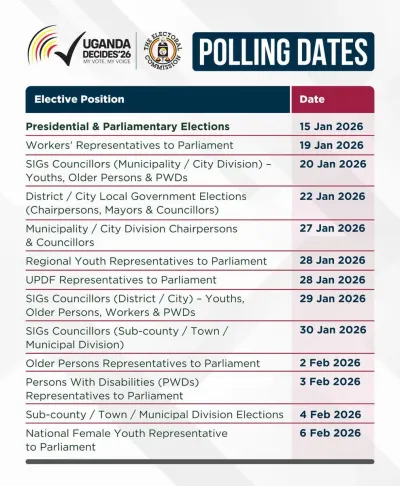



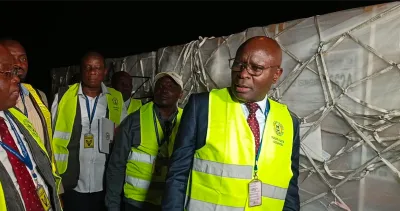


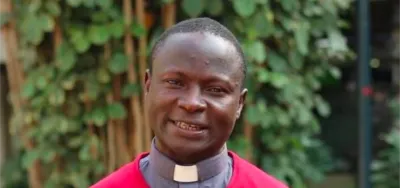
Solomon Lubambula
Leave a Comment
Your email address will not be published.